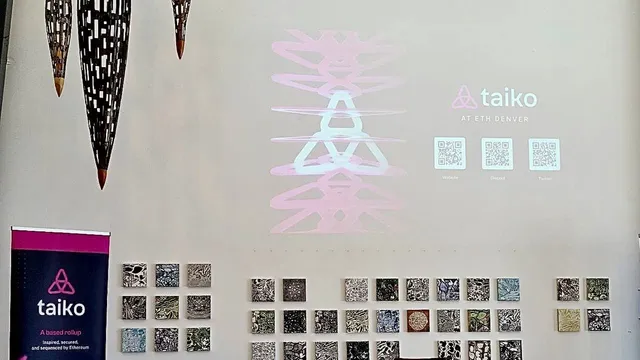
In the fluctuating world of cryptocurrency, marked by its speculative fervor and casino-like volatility, a distinct group of visionaries sees blockchain technology as a key to decentralizing various human activities for societal betterment. Daniel Wang, the founder of Taiko and a serial entrepreneur, stands at the forefront of this optimistic cohort.
The Vision of Decentralization
Wang’s journey into the blockchain arena began with a simple yet profound ambition: to foster decentralization in social platforms. He envisions a future where blockchain‘s inherent resistance to censorship, through distributed data storage and community-driven content moderation, empowers individuals with unfettered freedom of expression on the internet.
Blockchain’s Promise Beyond Crypto
At an Ethereum developer conference in November, Wang shared his aspirations for the next generation’s internet experience. “I hope the next generation can grow up being free and able to say anything on the internet,” he stated, emphasizing that “There won’t be progress if there is no freedom to criticize.”
Ethereum, co-created by Vitalik Buterin, attracted Wang’s attention due to its thriving developer community and the versatility of smart contracts. These contracts, essentially self-executing lines of code, have the potential to enable a wide array of crypto applications beyond mere value storage.
However, Wang’s extensive research led him to a critical realization: Ethereum’s Layer 2 solutions, designed to enhance the network’s scalability, lacked true decentralization. “It’s problematic to create decentralized apps on centralized blockchains,” Wang observed, highlighting a fundamental challenge in his quest.
The Quest for Scalability and Decentralization
Ethereum’s limitation of processing around 15 transactions per second stands as a significant bottleneck for various applications. “Rollups,” a Layer 2 scalability solution, emerged as a workaround by offloading transactions to secondary chains and batching them back to the main chain. Yet, Wang pointed out the compromise on decentralization inherent in most rollups, contradicting the ethos of web3.
Determined to address this gap, Wang founded Taiko in March 2022, aiming to develop an infrastructure layer for genuinely decentralized social applications.
Taiko’s Journey and Funding Milestones
Taiko’s mission to revolutionize the web3 infrastructure quickly gained traction, culminating in significant funding achievements.
Series A Triumph
Taiko’s recent Series A funding round closed with $15 million, led by a consortium of leading venture capitalists including Lightspeed Faction, Hashed, Generative Ventures, and Token Bay Capital. This round marks a pivotal moment in Taiko’s growth, propelling it into unicorn status, a distinction confirmed by TechCrunch.
| Funding Round | Amount Raised | Leading Investors |
|---|---|---|
| Series A | $15 million | Lightspeed Faction, Hashed, Generative Ventures, Token Bay Capital |
A Diverse Backing
The round saw participation from a broad array of investors, such as Wintermute Ventures, Presto Labs, and Amber Group, reflecting the vibrant and interconnected nature of the crypto investment landscape. The funding is earmarked for the impending launch of Taiko’s mainnet, underscoring the startup’s progress and ambition.
Empowering Developers
In anticipation of its mainnet launch, Taiko announced a $30 million grant allocation for developers, a testament to its commitment to fostering innovation within the web3 ecosystem. The latest testnet has already seen remarkable engagement, with over 1.1 million wallet addresses and 13 million transactions, signaling strong community interest and potential.
Rethinking Social Networks
Wang envisions Taiko as the foundation for a new era of social networks, genuinely owned and operated by their users. Current decentralized networks often fall short of this ideal, constrained by infrastructure that could be further decentralized.
Challenges and Innovations
Content quality and safety remain significant challenges for decentralized social apps. Wang proposes an intermediary “relayer” layer to filter content according to the unique perspectives of each decentralized network. This approach aims to balance content quality with the freedom and diversity inherent in decentralized systems.
Incentivizing Quality Content
The question of how to incentivize the creation of desirable content in a decentralized framework looms large. Wang contrasts the profit-driven motives of web2 networks with the community-centric ethos of web3, emphasizing the need for token incentives to align with the development of genuinely useful products.
Looking Ahead: The Future of Decentralization
Wang’s reflections on the trajectory of crypto and decentralized technology underscore a long-term perspective. “We are ten years from crypto’s mass adoption, but every technology is built on an existing technological achievement,” he remarked, highlighting the evolutionary nature of technological progress.
Taiko’s Role in Shaping the Future
As Taiko prepares for its next developmental milestones, the company stands at the cusp of potentially reshaping the internet’s infrastructure. With a focus on decentralization, community ownership, and the free flow of information, Taiko’s efforts could herald a new age of digital freedom and innovation.
A Global Movement Towards Decentralization
The work of visionaries like Wang and companies like Taiko underscores a growing movement towards leveraging blockchain technology for societal good. Amidst the speculative chaos of the crypto world, their commitment to decentralization as a means to empower individuals and foster a more open internet remains a beacon of optimism for the future.
Related News:
Featured Image courtesy of DALL-E by ChatGPT
